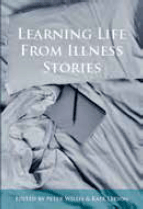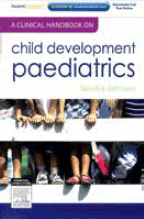Learning life from illness stories
Peter Willis and Kate Leeson, editors
Queensland: Post Pressed, 2012
ISBN 978 0646 579 320, $29.95
 Have you ever contemplated what it must be like for our patients to leave the surgery after we have delivered a diagnosis of a lifethreatening illness? What will they have to face in the coming weeks and months? How will they deal with the loss of their future, their hopes and their dreams, and the threat of annihilation and death?
Have you ever contemplated what it must be like for our patients to leave the surgery after we have delivered a diagnosis of a lifethreatening illness? What will they have to face in the coming weeks and months? How will they deal with the loss of their future, their hopes and their dreams, and the threat of annihilation and death?
This unusual book is a collection of remarkable stories of such experiences, told in prose and poetry by 10 writers who each have a lifethreatening illness such as multiple sclerosis and dementia, or who are confronted by the illness and death of a close family member.
Each story reveals a unique struggle through grief, darkness and despair, of coming to terms with the diagnosis, and of discovering some deep learning from their experience. As one writer puts it, ‘Illness, it seems, is a powerful transitional space where it is possible to connect with our inner selves and develop.’ In different ways the stories grapple with the existential questions of life and death through philosophy, spirituality, reason and humour.
Learning Life from Illness Stories is a book for us as doctors: for us to listen to the cry behind the text and to hear our own inner response; then to allow that response to connect us with our patients more empathically and with more understanding, as we walk alongside them through the journey of their illness.
It is also a book for our patients: because it can help them understand that they are not alone, that there are others out there who have ‘been there’ and that their own experiences are normal.
It can be liberating to discover a community of fellow sufferers, who have found a way to face life and with whom to connect through common experience.
Ultimately, Learning Life from Illness Stories is a book for all of us when we confront our own mortality.
I found these stories very humbling and moving. The courage of each of the writers wells up throughout the pages: courage not only in facing their new reality, but also in sharing publically their profound learnings about life. This book makes me think again about how I relate to my own patients: one of the authors posed the challenging question, ‘Why is it that not until you are dying do service providers show their care for the person rather than the disease?’
Dr Sheila Clark
Adelaide, SA
A clinical handbook on child development paediatrics
Sandra Johnson
Sydney: Elsevier, 2012
ISBN 978 0729 540 896, $81.00
 A Clinical Handbook on Child Development Paediatrics is a brilliant overview of developmental paediatrics, fully accessible online, which comprehensively covers diagnosis and management of the most commonly encountered disorders. Essentially aimed at paediatric trainees and paediatricians, it will also benefit general practitioners and assist allied health workers interested in this area of healthcare.
A Clinical Handbook on Child Development Paediatrics is a brilliant overview of developmental paediatrics, fully accessible online, which comprehensively covers diagnosis and management of the most commonly encountered disorders. Essentially aimed at paediatric trainees and paediatricians, it will also benefit general practitioners and assist allied health workers interested in this area of healthcare.
A GP is the first point of medical contact for most parents of children with a developmental disability, and the most challenging aspect of this consultation is recognising normal development from that which requires further medical follow up. Appropriate choice of investigations and a logical approach to management are important clinical decisions that must address the patient’s best interests. This handbook is a reliable reference for the busy GP during their limited clinical contact with the young patient and their parents.
Chapter one effectively summarises normal development, while the following chapters explore with detail a range of developmental disorders complete with diagnostic criteria and management strategies listed as tables and text boxes. Topics include motor and coordination problems, hearing and vision loss, specific learning and language disorders, attention deficit hyperactivity disorders along with autistic spectrum disorders. The more demanding presentations such as behavior difficulties, school refusal and mood disorders are also adequately covered with a final chapter on legal issues. Highlighted sections on ‘Practice points’ and ‘red flags’ at the end of each chapter further emphasise all the key concepts.
A Clinical Handbook on Child Development Paediatrics is very informative and an excellent resource to have on the shelf in any general practice. Although more relevant to the paediatrician, the GP with a special interest in this area and a primarily paediatric patient profile will certainly find it a valuable resource.
Dr Mohna Sharma
Sydney, NSW